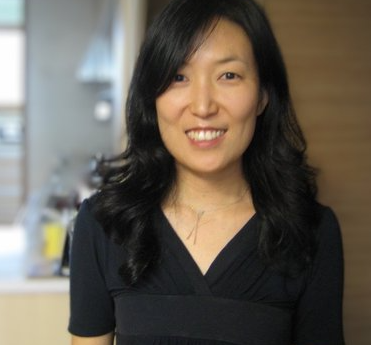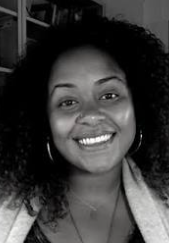social theory
Geography and Social Theory Colloquium Series
Geography Colloquium Series
A space of interrogation: opening the black box of asylum adjudication
I examine the spatiality and practice of asylum adjudication in the context of the Danish asylum system. People who make an asylum claim in Denmark are required to participate in interviews conducted by the Danish Immigration Service. These interviews serve as the principal way through which the Danish state gathers evidence, assesses a person’s credibility, and determines an asylum claim. Bringing together insights from feminist political geography and feminist legal theory, I conceptualize the asylum interview as a quasi-legal space marked by wildly uneven but also uncertain power relations. I illustrate how the asylum interview and its ‘internal’ power dynamics are connected to and informed by other geographical sites, policing practices, and imaginations across multiple temporalities, spaces, and scales. While state authorities and politicians often represent the asylum interviews and the spaces in which they take place as impartial and sequestered from politics of any kind, I argue that the asylum interview is more akin to the quasi-legal dynamic of police interrogations.
Dr Malene Jacobsen is a NUAcT Fellow in Geography at Newcastle University, United Kingdom. She is a feminist political geographer working at the intersection of political geography, critical refugee studies, and feminist legal theory. Malene has published on issues related to the geographies of war and refuge, families’ struggles to end forced separation, the politics of dispossession and refusal, as well as the legal re-writing of refugee protection. As a Marie Skłodowska-Curie Fellow, Malene recently completed the EU-funded research project ‘JustAsylum’, which explored the lived realities and spaces of asylum adjudication.
ST600 Speaker Series
Eunjung Kim’s research and teaching interests include transnational feminist disability studies; theories of vulnerability and human/nonhuman boundaries; Korean cultural history of disability, gender, and sexuality and anti-violence feminist disability movements; Asian feminisms and women’s movements; critical humanitarian communications and human rights; asexuality and queer theories. She is currently working on a book-length manuscript on violence against people with disabilities and illnesses, health justice activisms, posthumous care, and the ecology of aging and dying in South Korea and beyond.
Zomm Link: TBD

Geography Colloquium Series
"Necropolitics, Border Walls, and a Murder of Jim/Juan Crow in the Mexico-US Frontera"
Across the Mexico-US borderlands, overlapping white supremacist and Anglo-nationalist movements are building private walls as monuments to Donald Trump. Many social justice activists and ecological stewards have warned that these Trumpist border walls present specific and new threats to social and ecological landscapes, particularly along the riparian sections of the borderlands. To slow their building and, even, topple these walls, many activists and ecological caretakers are working to fortify networks with similar efforts elsewhere. In an effort to provide analyses useful to such justice endeavors, I employ Achille Mbembe’s concept of necropolitics to situate the borderland activist struggles against the Trumpist walls within a broader context of struggle against the commemoration of racist terror in the US South. Specifically, I use Mbembe’s theorization of necropolitical deathworlds to illustrate some potential common cause linking protests against Trumpist walls in the Paso del Norte region of the Mexico-US border with a Black Lives Matter/Say Her Name coalition that is bringing down Confederate monuments in central Texas. In placing these movements in connection with each other, I highlight a synergy of the white supremacy of Jim Crow with the Anglo nationalism behind a Juan Crow variant of racist terror and anti-immigrant hatred driving the Trumpist wall constructions. Recognition of this convergence is one way, I maintain, for identifying opportunities for making common cause across Americas’ myriad struggles to destroy the racist monuments that glorify the necropolitical legacy of racist colonialism and its ongoing social and ecological devastation.
ST600 Speaker Series
A native of Puerto Rico, Yomaira was born and raised in Hoboken, NJ and is a first-generation high school and college graduate. She is Associate Professor of Global Afro-Diaspora Studies in the department of English at Michigan State University. She earned her M.A. and Ph.D. in Comparative Ethnic Studies at the University of California, Berkeley and her B.A. in English, Puerto Rican and Hispanic Caribbean Studies, and Women’s and Gender Studies at Rutgers University, New Brunswick (Douglass College).
Zoom Link: TBD
Table, Map and Text: Writing in France circa 1600
Tom Conley is Lowell Professor in the Departments of Romance Languages and Visual and Environmental Studies at Harvard University. Conley studies relations of space and writing in literature, cartography, and cinema. His work moves to and from early modern France and issues in theory and interpretation in visual media. In 2003, Dr. Conley won a Guggenheim Fellowship for his work in topography and literature in Renaissance France.
Table, Map and Text: Writing in France circa 1600
Tom Conley is Lowell Professor in the Departments of Romance Languages and Visual and Environmental Studies at Harvard University. Conley studies relations of space and writing in literature, cartography, and cinema. His work moves to and from early modern France and issues in theory and interpretation in visual media. In 2003, Dr. Conley won a Guggenheim Fellowship for his work in topography and literature in Renaissance France.
